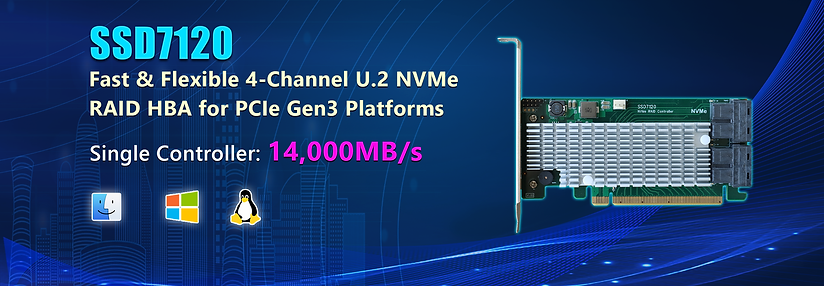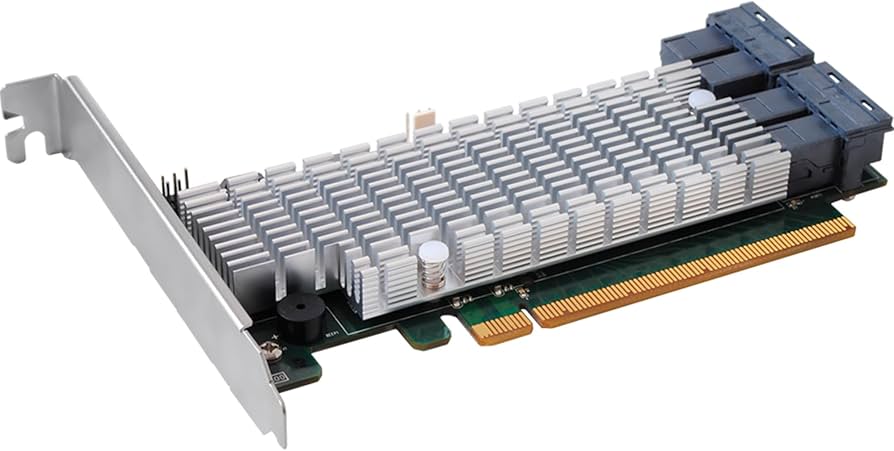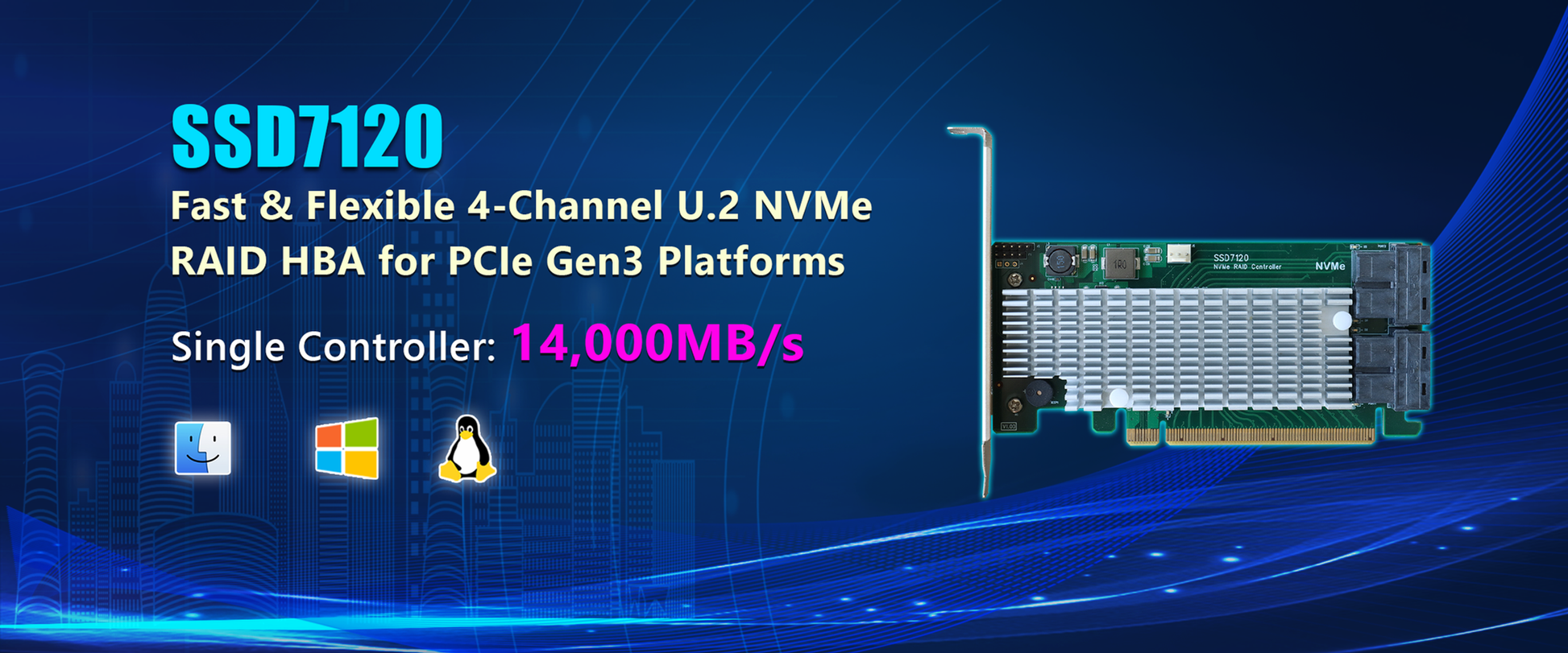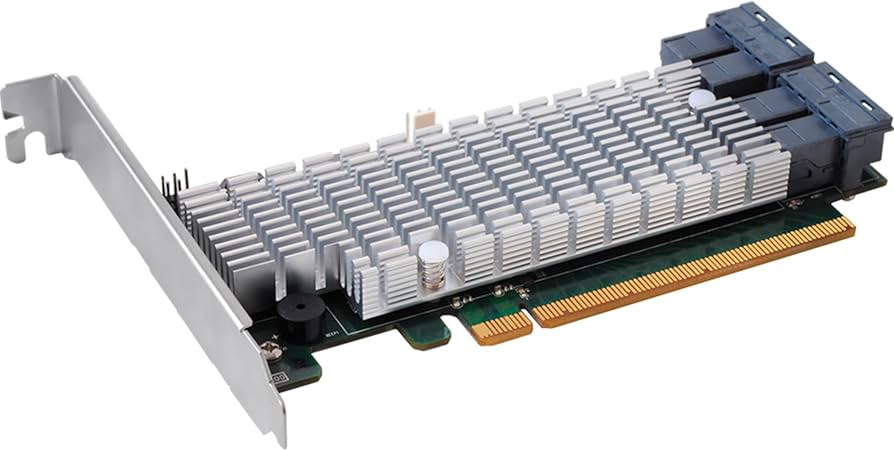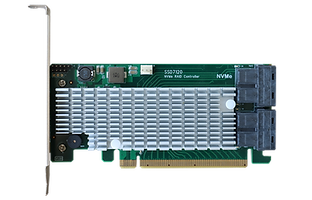| Product Type | RAID Controller |
| Form Factor | Low profile |
| Model | SSD7120 |
| Interface | PCIe 3.0 x16 |
| RAID Levels Supported | RAID 0, 1, 10, Single |
| Compatible Operating Systems | Windows 10, Windows Server 2012 R2 or later, Linux, macOS |
| Power Requirements | Max 18.6W |
| Weight | Approximately 0.72 lbs (325g) |
HighPoint SSD7120 PCIe 3.0 x16 4-Channel U.2 NVMe RAID Controller
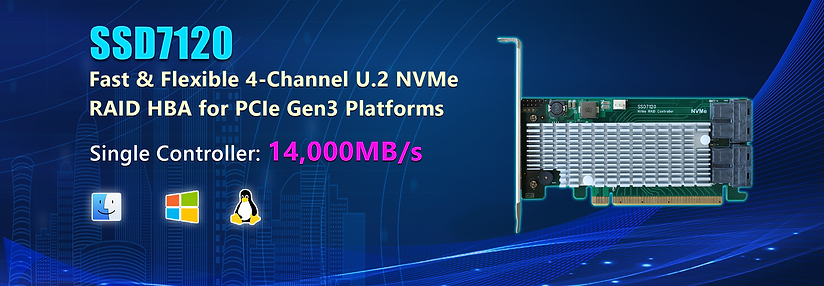
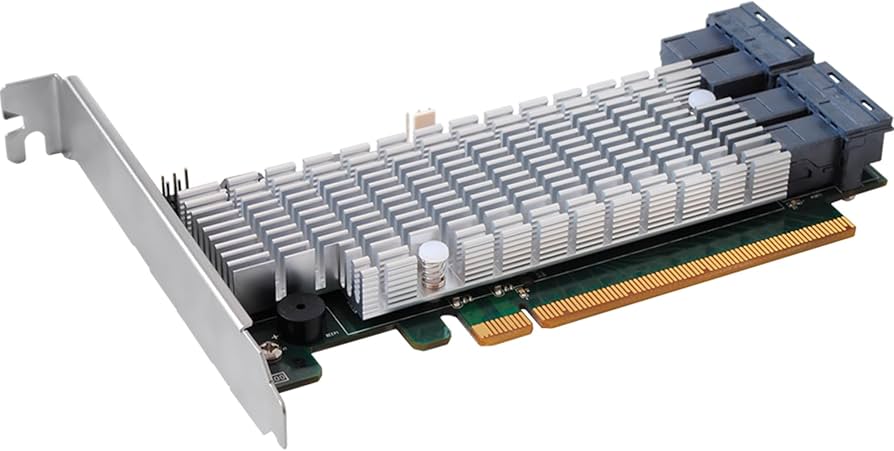
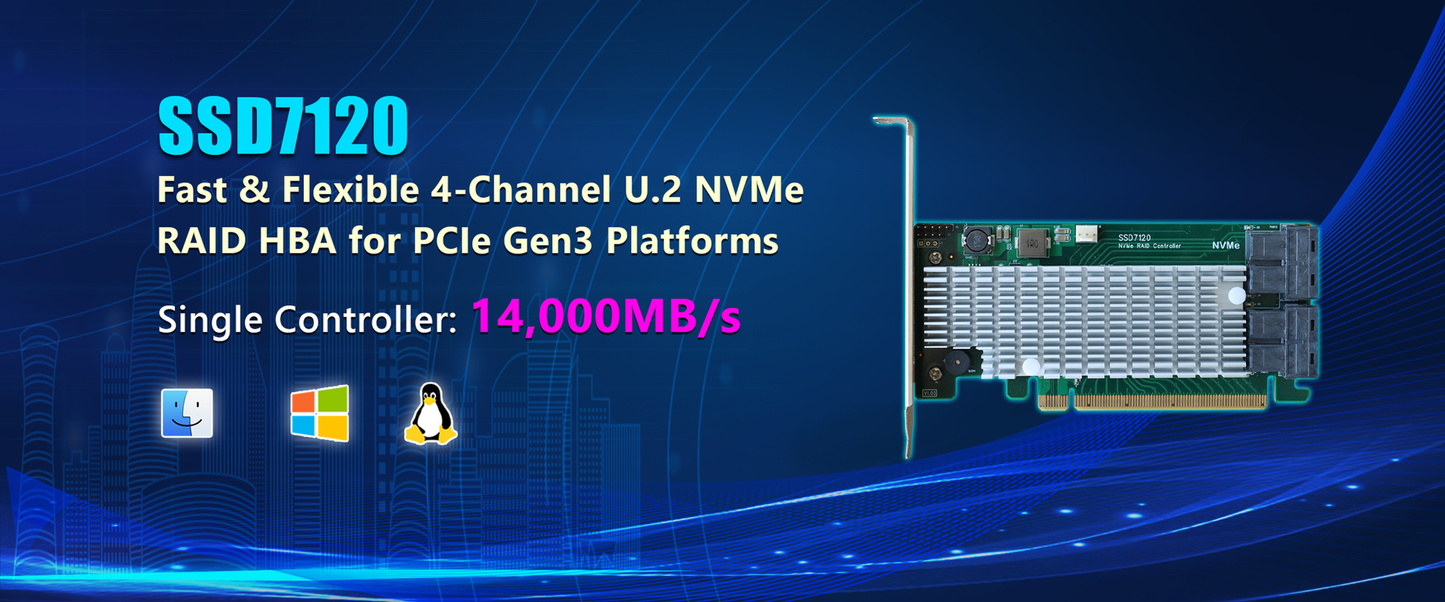
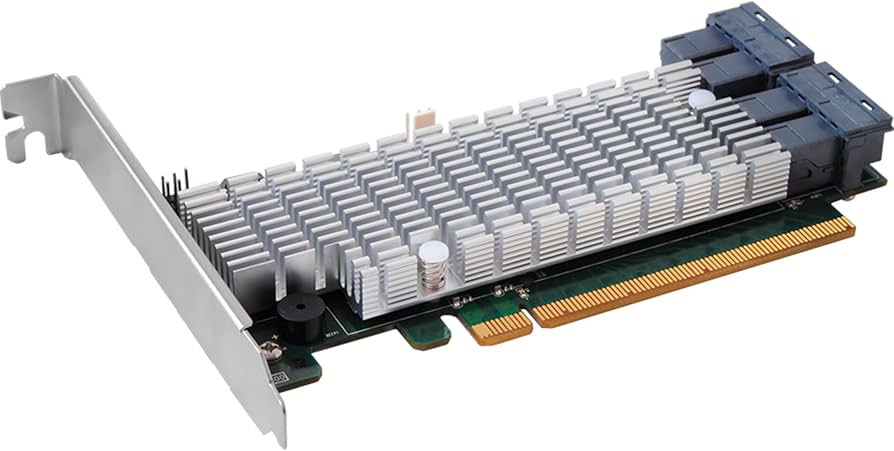
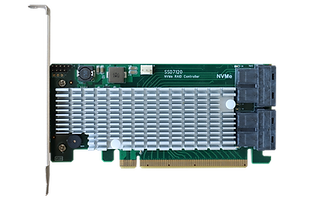
Key Benefits
AI-Powered Summaries from Online Customer Reviews
Eye-Insights™ are generated by proprietary AI that analyzes real online customer reviews to highlight top pros and key product features. While we aim for accuracy, insights are provided “as-is” and individual results may vary.
- High-speed PCIe 3.0 x16 interface enables rapid data access and transfer for demanding workloads
- Multi-platform support across Windows, Linux, and macOS broadens deployment flexibility
- Compact, low-profile design fits space-constrained systems without sacrificing performance
Product Overview
The HighPoint SSD7120 is a versatile and high-performance RAID controller built for professionals and enterprises seeking robust NVMe storage solutions. Utilizing a PCIe Gen3 x16 interface, it delivers exceptional data throughput for intensive workloads including content creation and data analytics. With support for up to four internal U.2, U.3, or M.2 NVMe SSDs, it offers deployment flexibility across applications.
This low-profile RAID card supports RAID levels 0, 1, 10, and Single, and is compatible with Windows, Linux, and macOS. Management is streamlined via WebGUI, CLI, BIOS, and UEFI interfaces. Compact dimensions make it ideal for tight chassis environments, and while it's not TAA-compliant, it’s well-suited for commercial deployments. For compact, high-performance NVMe RAID capabilities, the SSD7120 delivers performance and flexibility.
Specifications
Product Overview
Wireless Features
| Wireless Connectivity |
Compliance & Origin
| Country of Origin | China |
| TAA Compliance | No |
| RoHS Compliance | Yes |
| Certifications | CE, FCC, RoHS |
Advanced Security Features
| Secure Boot Support | Yes (UEFI integration) |
| Drive Health Monitoring | Yes (via SMART, temperature sensors) |
| Data Recovery Mode | RAID rebuild available via management tools |
| Password Protection | No hardware-based security |
Interfaces
| Host Interface | PCIe 3.0 x16 |
| Drive Interface | U.2 (SFF-8639), compatible with U.3 and M.2 via adapter |
| Number of Channels | 4 |
| NVMe Ports | 4 x U.2 connectors |
| Data Transfer Rate | Up to 14,000 MB/s aggregate throughput |
| Supported Devices | NVMe SSDs (U.2, U.3, M.2 via adapter) |
Physical & Environmental
| Width | 5.72 inch (145.3 mm) |
| Depth | 2.72 inch (69.2 mm) |
| Height | 0.67 inch (17 mm) |
| Operating Temperature | 0°C to 50°C (32°F to 122°F) |
| Storage Temperature | -40°C to 70°C (-40°F to 158°F) |
| Relative Humidity (Operating) | 5% to 85% non-condensing |
| Relative Humidity (Storage) | 5% to 95% non-condensing |
| Cooling | Passive heatsink |
Cloud Management & Licensing
| Management Interface | WebGUI, Command Line Interface (CLI), BIOS, UEFI |
| Driver Support | Windows, Linux, macOS |
| Monitoring Features | Temperature monitoring, SMART status |
| Licensing Requirements | None; hardware RAID supported natively |
| Firmware Upgrade | Upgradable via WebGUI or CLI tools |
